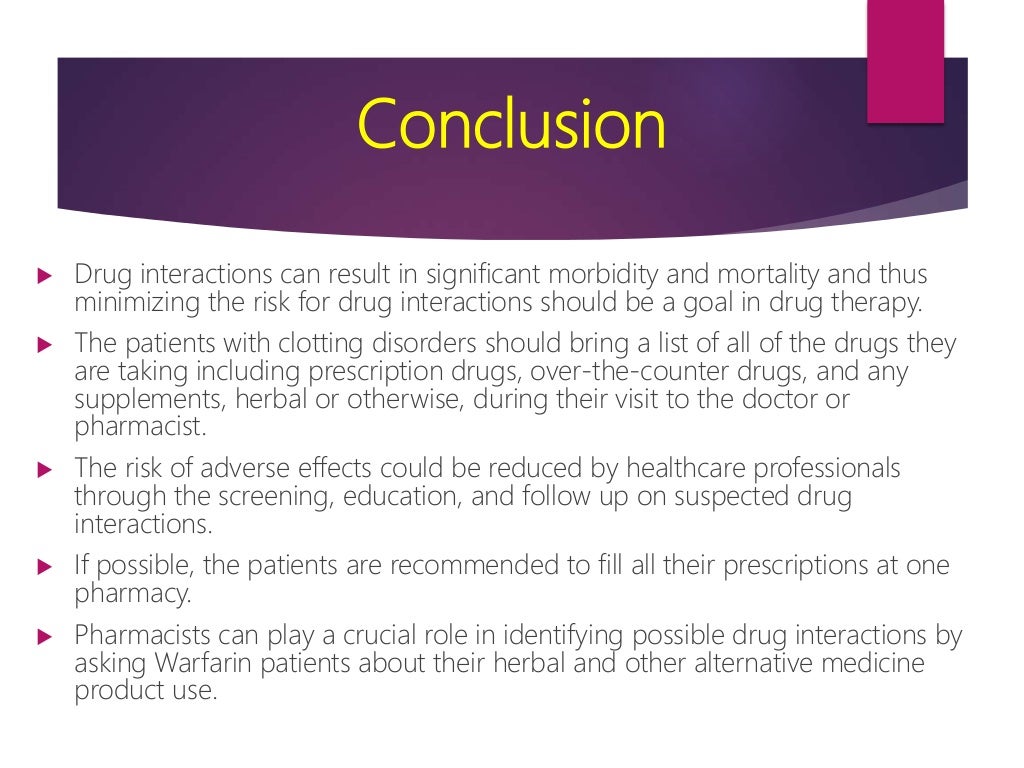


What else should I do while I am taking warfarin? Ask your healthcare provider for more information about vitamin K.

Vitamin K is found in green leafy vegetables, broccoli, grapes, and other foods.
Eat the same amount of vitamin K daily to help keep your INR stable. Talk to your healthcare provider before you start or stop any medicines. Some herbal supplements that can affect the way warfarin works are ginkgo biloba, garlic, fish oil, vitamin E, and tumeric. Some examples include NSAIDs, aspirin, acetaminophen, and certain antacids, antibiotics, and medicines used to lower cholesterol. Do not start or stop taking medicines or herbal supplements that can affect the way that warfarin works. Contact your healthcare provider if you miss a dose or you have any questions about how to take warfarin. Take this medicine exactly as directed. Your provider may need to adjust your dose based on your INR results. Your healthcare provider will need to monitor you closely while you are taking warfarin. Go to all your follow-up appointments. You have severe stomach pain or you vomit blood. Heavy bleeding during monthly period in women. Red spots on your skin that look like a rash. What are the signs and symptoms of warfarin toxicity? You start or stop taking another medicine or supplement that affects the way warfarin works. A sudden decrease of vitamin K in your diet can increase your risk of bleeding. Your risk of bleeding increase over time when your INR is too high. The INR, or International Normalized Ratio, is a measure of how long it takes your blood to clot. Your healthcare provider adjusts your dose based on your INR. Your risk of warfarin toxicity increases if you do not have your INR checked as recommended. You take higher doses of warfarin than is recommended by your healthcare provider. What increases my risk for warfarin toxicity? Warfarin toxicity can cause bleeding that can become life-threatening. It works by making your blood clot more slowly. Warfarin is a medicine that is used to prevent or treat the formation of blot clots. Certain changes to foods and medicines can also increase the effect of warfarin. Warfarin toxicity happens when you have too much warfarin in your body.










